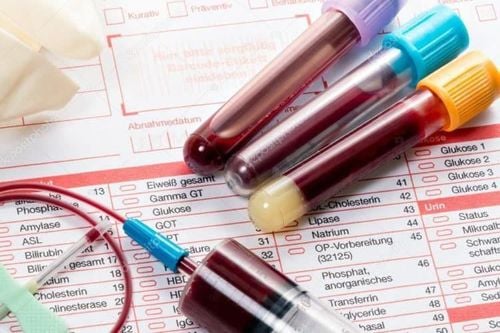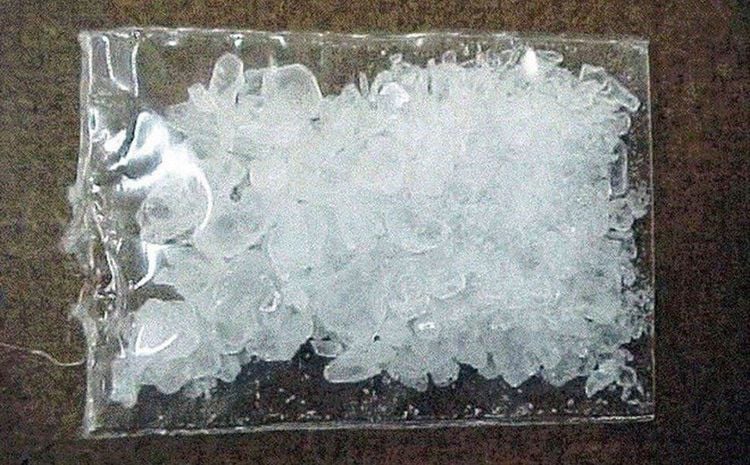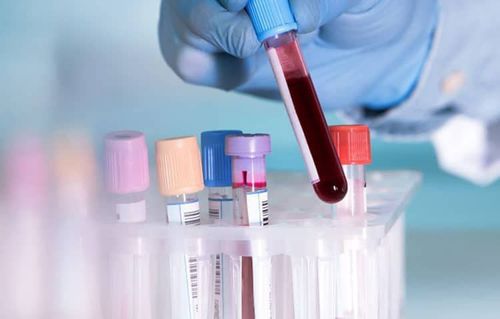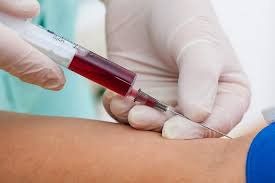Drugs or any stimulant substances, upon entering the body, integrate into the blood's composition. Therefore, blood tests can be used to detect the presence of these substances. The accuracy of the results varies depending on the type of substance and its duration in the bloodstream.
1. Blood test
1.1 What is a Blood Test?
A blood test, or hematologic test, involves analyzing a blood sample to measure the concentration of specific substances or to count the various types of blood cells. Blood tests can be used to detect signs of disease, pathogens, antibodies, tumor markers, or to assess the efficacy of medical treatments.
1.2 Common Purposes of Blood Tests
Blood tests provide valuable insights for physicians to monitor and evaluate a patient's overall health and detect a wide range of disorders or diseases linked to blood parameters.
Blood tests can also determine blood type (e.g., A, B, O, AB), which is crucial for blood transfusions and other related medical procedures. Additionally, advancements in medical science have enabled blood tests to detect serious diseases in their early stages, offering the opportunity for prompt treatment and improving the chances of recovery, thus preventing long-term complications.
1.3 When Are Blood Tests Necessary?
Healthcare professionals recommend undergoing routine health check-ups once or twice a year, including taking a blood test for every check-up, to monitor personal health. Furthermore, if an individual exhibits unusual symptoms and the cause remains undetermined, a blood test may be conducted for further investigation. High-quality testing centers tend to provide more accurate and reliable results.
1.4 What Conditions Can Blood Tests Detect?
- Endocrine and Metabolic Disorders: Diabetes, thyroid diseases, etc.
- Calcium Imbalances: Disorders related to calcium levels, such as hypocalcemia or hypercalcemia, associated with conditions like cancer, malnutrition, and other disorders.
- Electrolyte Imbalances: Dehydration, kidney diseases, liver conditions, heart failure, and hypertension.
- Kidney diseases and impaired renal function.
- Conditions related to enzyme disorders, deficiencies or excesses.
- Cardiovascular Diseases and Lipid Disorders
- Hematological Conditions: Anemia, infections, parasitic diseases, clotting disorders, blood cancers (e.g., leukemia), and autoimmune conditions.
1.5 Can Blood Tests Detect Drug Addiction?
Indeed, addictive substances or stimulants, once ingested, become part of the blood composition. Consequently, blood tests for drug detection are categorized under tests for hematological disorders and blood components. The detection of substances depends on how long they remain in the bloodstream, and the accuracy of the results may vary accordingly.

2. How Do Blood Tests Detect Substance Addictions?
Cannabis Detection:
Cannabis Detection: Cannabis induces euphoria and relaxation. After consumption, it enters the bloodstream and remains detectable for up to two weeks. The most accurate results are obtained when the blood test is conducted within this timeframe.
Heroin Detection:
Heroin is an addictive type of narcotics that depresses brain and nervous system function. A blood test can detect the presence of heroin up to 12 days after the patient’s last consumption, as this narcotic can stay in the bloodstream for 12 days.
Ecstasy Detection:
Ecstasy is a stimulant that produces intense euphoria, characterized by smooth, fluid movements and relaxed, flexible limbs. As the effects peak, users may experience sweating, light sensitivity, and a heightened sense of openness and exhilaration. Ecstasy typically enters the bloodstream within 1-2 days, so it is advised to undergo a blood test during this window for the most accurate results.
Crystal Meth Detection:
Crystal methamphetamine is a potent stimulant that causes insomnia, nervous system disruption, blurred vision, physical debilitation, and immunosuppression. Blood tests can detect use of crystal methamphetamine within 24-36 hours of ingestion.

3. How Are Addictive Substances Detected in Blood Tests?
Cannabis:
The effects of cannabis peak 20 to 30 minutes after consumption and can last between 90 to 120 minutes from a single dose. Cannabis metabolites are detectable in the bloodstream within hours of use and can remain in the body for up to two weeks.
Heroin and Morphine:
Heroin's effects last for 3 to 6 hours, and it is metabolized at a rate of 2 to 12%. It is converted and excreted through urine as morphine remains unchanged throughout the elimination process. Upon entering the body, heroin is rapidly converted into morphine. The excretion process of heroin is similar to that of morphine and codeine, with 10 to 15% being metabolized into morphine or codeine.
Ecstasy:
Ecstasy begins to take effect within 30 minutes of consumption, reaching its peak at about 1 hour, with effects lasting 2 to 3 hours. Approximately 65% of the drug is excreted through urine.
Crystal Meth:
Crystal meth, a synthetic stimulant, can be detected in the bloodstream within 24-36 hours after the last dose.
4. Important Considerations for Drug Detection in Blood Tests

One of the reasons blood tests for detecting addictive substances may not be entirely accurate is that each drug stays in the body for a different duration. The following outlines the typical detection windows for various substances:
- Amphetamine: 12 hours
- Cannabis: Up to 2 weeks
- Cocaine: 1-2 days
- Heroin: Up to 12 days
- Hallucinogenic Drugs: 2-3 hours
- Ecstasy: 1-2 days
- Crystal Meth: 24-36 hours
- Morphine: 6-8 hours
Blood tests are valuable for monitoring health and detecting a wide range of diseases or disorders, including the presence of addictive substances. However, the detection period for each drug varies, depending on how long it remains in the body.
Vinmec International Hospital is a top-tier healthcare facility that combines expert medical care with a team of highly qualified doctors and state-of-the-art technology. It is renowned for its comprehensive and professional medical services, including consultations and treatments, all provided in a clean, safe, and hygienic environment. Patients can have complete confidence in the accuracy of their test results when choosing to undergo testing at Vinmec.
To arrange an appointment, please call HOTLINE or make your reservation directly HERE. You may also download the MyVinmec app to schedule appointments faster and manage your reservations more conveniently.
To arrange an appointment, please call HOTLINE or make your reservation directly HERE. You may also download the MyVinmec app to schedule appointments faster and manage your reservations more conveniently.








